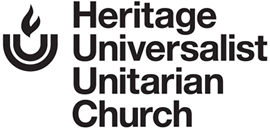Opinion
by Russ Araujo
In the mid-1980s, I was invited to another UU church, outside of Cincinnati, to give a guest sermon. My talk was on Krishnamurti, an Indian thinker of the 20th Century.
This church had the practice of doing a “talk back” during the worship service. This is the practice, followed in some churches, of people being able to give a response right after the sermon. Everyone who gave me a response hated my sermon.
One man stood up, looked at me, and said the words, “You. Are not. A true. Unitarian.”
Well now! I had been evaluated against some sort of standard I did not know existed. Later, I learned that someone at the church informed my own minister how much they disliked what I said. Maybe they wanted me to be held accountable.
This experience relates to the amendment I plan to submit for the proposed new Article II (Note 1) of the bylaws of the Unitarian Universalist Association. The experience deals with being held to a standard, and with accountability.
In this column I’ll be sharing my reasons why an amendment is needed, provide the text of the amendment itself, and raise and answer a few questions.
Whatever version of Article II comes out of the General Assemblies (it will take GA 2023 and GA 2024 to complete the process), it is likely to be what controls our UUA leadership for the next 15 to 30 years or more. Our current Article II is the result of a major revision that took effect back in 1985, with a few smaller changes after that. A new Article II that lasts 30+ years is not out of the question.
There is no telling who will be in leadership positions in the UUA 15 to 30 years from now. It is appropriate to have bylaws that direct—and control—the unknown leaders of the future.
The proposed Article II says that “We are accountable to one another,” and it includes seven covenants and one pledge.
A covenant is an agreement, and people are held accountable to agreements all the time. An example is in our own congregation, where a Disruptive Behavior Policy acts as a type of covenant or agreement. The policy names the specific behaviors that are unacceptable, and spells out in detail the appropriate series of steps to take depending upon the violation. The offender may have their involvement in the church limited or banned.
But not all covenants or agreements are such that people should be held accountable to them. To be held accountable to a covenant, it is best if the covenant has a set scope, is achievable, and has enough detail to determine whether or not the covenant is met. This is true not only in legal contracts, but in everyday life as well.
The covenants of the proposed Article II provide wonderful, aspirational statements of the direction we as UUs want to go. But they do not have a defined scope. Some of them are not achievable according to the plain meanings of their words. And they lack detail. Therefore, these covenants should not be things for which people are held accountable.
My amendment is intended to prevent people from being punished for not meeting these aspirational covenants.
The amendment would change the proposed Article II by adding this stand-alone paragraph: “No covenants or pledges expressed in Article II of these bylaws may, by themselves, be used as the basis for the Association or its member organizations to take punitive action against a congregation, organization, or person.”
People hearing this amendment may have a few questions.
One question is: Would this amendment mean that no one could ever be held accountable?
No, not at all. A given organization, congregation, or group of persons could always set up other, additional covenants that have a set scope, are achievable, and have detail. The organization and people involved could be held accountable to those other covenants.
Another question: Isn’t it silly to worry about punitive action from the UUA, when the UUA has never come in and meddled in the affairs of our own congregation?
Unfortunately, I do not think it is silly. There is a task group that has been appointed by the UUA Board of Trustees to rewrite the rest of the UUA bylaws, exclusive of Article II. The 2022 General Assembly passed a resolution that provides the charge to this task group. Among other things, the charge directs that the new bylaws should “Provide accountability to our long-standing anti-racist and anti-oppressive commitments.” (Note 2) In other words, the rewritten bylaws should not just mention accountability among ourselves, but should provide accountability—provide the mechanism by which accountability will be implemented.
How might that mechanism work? One clue is that the UUA Board of Trustees is in the process of setting up an Accountability Launch Group. The group will be made up of people with a variety of skills, perspectives, and identities, and it will focus on holding the UUA Board and Administration accountable (apparently to goals set out in the Widening the Circle of Concern report). (Note 3) (Note 4) The Board has developed a detailed charge to the Accountability Launch Group (Note 5), and the application for membership in the group has been posted (Note 6).
The new bylaws might require the establishment of other Accountability Groups. A question that several people have raised is, “To whom will the Accountability Groups themselves be accountable?”
When I consider all these things, I see reason for concern.
In the mid-1980s, when I was evaluated against an unspecified standard of what a Unitarian is, no punishment resulted for me. In future years, when people are evaluated against the Article II aspirational covenants, no punishment should result for them.
My amendment to the proposed Article II will help assure that.
—–
Note 1: Article II Study Report 2021-2023, prepared by the Article II Study Commission. https://www.uua.org/files/2023-02/article-II-study-report-2021-23.pdf
Note 2: “Renewing UUA Bylaws for Theologically Grounded and Mission-Focused Governance,” Unitarian Universalist Association, Business Resolution Adopted by the General Assembly, June 2022. https://www.uua.org/files/2022-08/reimag_bylaw_res_06262022.pdf
Note 3: UUA Board of Trustees Meeting Minutes for May 9, 2022. https://www.uua.org/files/2022-07/bot_min_05092022.pdf
Note 4: Widening the Circle of Concern: Report of the UUA Commission on Institutional Change, Unitarian Universalist Association, Boston, June 2020. Also found online at https://www.uua.org/uuagovernance/committees/cic/widening
Note 5: UUA Board of Trustees Meeting Minutes for June 13, 2022. https://www.uua.org/files/2022-10/bot_min_06132022.pdf
Note 6: UUA Board of Trustees Meeting Minutes for October 21-22, 2022. https://www.uua.org/files/2022-12/bot_min_10202022.pdf

